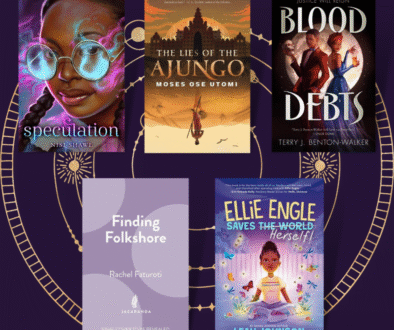The Plot Thickens: Kemosha of the Caribbean
Content warning: slavery, abuse, lethal violence
Toni Morrison is often quoted as saying, “If there’s a book you want to read but it hasn’t been written yet, then you must write it.” Alex Wheatle, author of Kemosha of the Caribbean definitely had this sentiment in mind as he crafted the story of Kemosha Black, an enslaved teenager turned free privateer in 1668 Jamaica. In the author’s note of this novel, Wheatle points out his dissatisfaction with the lack of representation in pirate lore dominating society for hundreds of years, but particularly in the recent blockbuster, Pirates of the Caribbean. This novel serves his mission to bring this representation to life so well that Kemosha of the Caribbean is easily the best pirate tale I have ever encountered.
If that seems a bold statement, its boldness pales in comparison to Kemosha’s enduring bravery and steadfastness. At the beginning of the story she is called to leave her brother and all of the people she has grown up with to tend to the tavern of a man she has never met before, a life he promises will be humiliating and at his every whim before he even changes coin with the owner of the plantation where she resides. Her anxiety of leaving behind everything she’s ever known has her leaping from the cart on their journey to Port Royal, incurring his ire and watchfulness before she learns of her fate. Once she arrives in his tavern, a white patron immediately makes clear that he intends to rape her, while paying the tavern owner for the act. Her escape from this new life sends her into the path of a father figure who will help her control her life going forward. The level of independence and freedom that Kemosha gains is hard-won and joyous. She finds love in the arms of another woman of color who has beaten the odds to thrive alone on an island where white men are in constant pursuit of claiming ownership over her body. She journeys to places that she’s only dreamed of, keeping her mother’s wishes close to heart the entire time. Kemosha stays true to herself, her desires, her personality, her emotions through many challenges and earns the respect of those who mean the most to her.
While the strength of character development for Kemosha is satisfying, at times her outbursts felt like stereotypical depictions of a high-strung, superstitious Caribbean teenager. This may just be my read as someone who tends to prefer emotionally reserved personalities, but it was an observation that I found numerous times throughout the book—which attests to the consistency of the characterization. Otherwise, I found that the novel hit all of the historical fiction notes I would like to see in a tale about a teenage girl fighting for agency over her own life while also seeking to help those around her do the same. Kemosha of the Caribbean does a fantastic job of showing the importance of community in fighting against oppression, particularly how individuals must recognize the necessity of making goals achievable for more than themselves. The hypocrisies of colonization, privateering, plantation systems, and forced illiteracy are so well-woven into the tale that points are made on each of these topics as a natural progression of the characters’ journey. I am not exaggerating when I say that Kemosha of the Caribbean is the most satisfying pirate story I’ve ever encountered. Pick it up and tell me if you feel the same.



